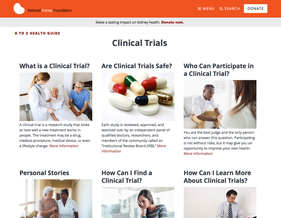 Post submitted by Kelli Collins, MSW, a Stakeholder Research Partner on our study. Kelli is the Vice President for Patient Engagement at the National Kidney Foundation (NKF). Many people are curious about clinical trials and medical research. They may wonder – What are clinical trials? How do I find one? Do I qualify? Is it safe? Others are confused about or even fearful of clinical trials. In addition, it can be hard to find clinical trials and enroll in them if eligible. To help overcome these challenges and dispel myths, the National Kidney Foundation (NKF) launched a website to help connect people with kidney disease to clinical trials. Visitors to the new site will find information about how clinical trials work, including how researchers find patients to enroll and what patients joining a trial are expected to do. Personal stories from people who have participated in a clinical trial along with general information about medical research can help patients decide if they would like to become involved in medical research. And, if so, the site can help them find clinical trials in their local area by answering a few questions about their health. Additional topics include:
So whether you are just curious to learn more about clinical trials or are ready to find one to join visit the NKF Clinical Trials website here. Want to get this information in the mail? A brochure by mail? Contact our NKF Cares Helpline to request your free copy (available in English and Spanish) today: 1-855-653-2273 or nkfcares@kidney.org.
0 Comments
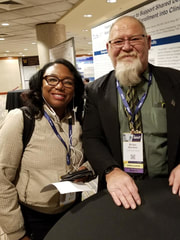 Post submitted by patient co-investigators, Katina Lang-Lindsey, PhD, LMSW. On Oct 31- November 2, 2019, I and another PREPARE NOW team member attended the Fourth Annual PCORI Conference at the Wardman Park Marriott, Washington, DC. The conference included well over 1,000 patients, caregivers, researchers, clinicians, and other healthcare stakeholders. The theme this year included, "From Evidence to Impact: Putting What Works into Action". This year featured several workshops and plenaries on what patient-centered outcomes research look like in the field? How do patients and other stakeholders engage in studies? These stories provided insight into the workings of projects funded by PCORI. I heard from researchers describing their partnerships with patients as stakeholders. I learned how innovative research impact and make a difference for patients, caregivers, clinicians, researchers and the healthcare community as a whole. I was privileged to attend a meeting about how telehealth can improve patient care outcomes. The session spot lighted two different projects with positive findings relevant to mental illness and skin disease. Among other workshops, I attended a workshop about prevention to risk mitigation and treatment for opioid use disorders, which I believe to be a timely discussion regarding the opioid epidemic in America to date. Finally, I became an Ambassador while attending the conference and was able to meet with other Ambassadors. I was able to network and exchange contact information for further discussions about patient engagement. In fact, a few Ambassadors and I founded a patient engagement group referred to as “Engagement Buddies for CER & PCOR” where patients and caregivers can network. I met and became friends with people from different parts of the United States. Everyone sitting around the table were Ambassadors and I was honored to meet them at this conference. 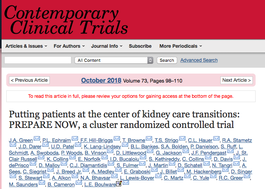 Care for patients transitioning from chronic kidney disease to kidney failure often falls short of meeting patients' needs. The PREPARE NOW study is a cluster randomized controlled trial studying the effectiveness of a pragmatic health system intervention, ‘Patient Centered Kidney Transition Care,’ a multi-component health system intervention designed to improve patients' preparation for kidney failure treatment. Patient-Centered Kidney Transition Care provides a suite of new electronic health information tools (including a disease registry and risk prediction tools) to help providers recognize patients in need of Kidney Transitions Care and focus their attention on patients' values and treatment preferences. Patient-Centered Kidney Transition Care also adds a ‘Kidney Transitions Specialist’ to the nephrology health care team to facilitate patients' self-management empowerment, shared-decision making, psychosocial support, care navigation, and health care team communication. The PREPARE NOW study is conducted among eight [8] outpatient nephrology clinics at Geisinger, a large integrated health system in rural Pennsylvania. Four randomly selected nephrology clinics employ the Patient Centered Kidney Transitions Care intervention while four clinics employ usual nephrology care. To assess intervention effectiveness, patient reported, biomedical, and health system outcomes are collected annually over a period of 36 months via telephone questionnaires and electronic health records. The PREPARE NOW Study may provide needed evidence on the effectiveness of patient-centered health system interventions to improve nephrology patients' experiences, capabilities, and clinical outcomes, and it will guide the implementation of similar interventions elsewhere. Click here to read the full article. 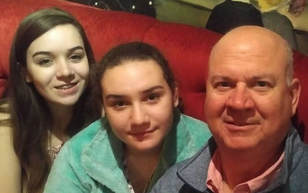 Meet Peter Woods, a patient co-investigator on our study who was a NYPD cop during September 11, 2001. This post was originally published by American Heart Association: Peter Woods hardly called in sick back when he worked for the New York Police Department. Then terrorists attacked the World Trade Center, creating a noxious cloud of finite glass, cancer-causing chemicals and other pollutants that hovered for months around ground zero. “I was healthy before 9/11,” said Woods, a retired police sergeant whose simple statement echoes thousands of others expressed by first responders and volunteers who helped with rescue and cleanup efforts. “I was healthy as a horse.” But within a few years of Sept. 11, Woods was diagnosed with sarcoidosis, an inflammatory disease that often affects the lungs and lymph nodes in the chest, as well as sinusitis and sleep apnea. All are conditions recognized and covered by the federally funded World Trade Center Health Program. But Woods, 57, also developed kidney disease, and then heart disease, two serious conditions that aren’t. He fears what other ailments might eventually emerge for him and others in his position. Researchers so far have linked respiratory illnesses, certain types of cancer, acid reflux, sleep apnea, post-traumatic stress disorder to the collapse of the World Trade Center on Sept. 11, 2001. Many of the problems centered around the enormous dust cloud created by the fall of the twin towers. Fires on the ground scorched for days, adding burnt carcinogenic particles to air already filled with asbestos, fiberglass and other deadly chemicals. More recently, studies have found some 9/11 survivors who have post-traumatic stress disorder are more likely than survivors without PTSD to have strokes and heart attacks. Heart disease, however, is not recognized as a World Trade Center-related condition. Neither is the autoimmune disease that ultimately destroyed Woods’ kidneys, leading him to years of dialysis before he finally received a transplant. As with many kidney disease patients, Woods suddenly found himself with heart problems. His previously healthy cholesterol level skyrocketed. In 2005, at age 44, he had the first of two heart stents inserted to open up blocked arteries. In January 2008, he underwent triple bypass surgery. “There is no coincidence in any of this,” he said. Woods recently participated in a study conducted by Dr. Mary Ann McLaughlin, cardiovascular health and wellness director of Mount Sinai Heart at New York’s Mount Sinai Medical Center. McLaughlin’s research is examining “a critical knowledge gap” – the extent of kidney disease among 9/11 survivors. “This far out from 9/11, it's amazing that there are disorders we're still finding, especially with cancer rates that may be starting to climb, since it takes many years from initial exposure to a carcinogen to have the actual impact,” she said. Autoimmune disorders such as lupus also have become increasingly diagnosed among survivors. “Many patients complain of increase in allergies and dermatitis since 9/11, leading doctors and researchers to suspect that the symptoms are due to hyperactive immune reactions from being inundated with so much pulverized material,” she said. “These are part of the things you start to see years and years after a disaster.” More than 71,800 first responders and 16,600 survivors currently receive treatment through the World Trade Center Health Program. And the numbers grow each month by the hundreds. Woods hopes to raise awareness about heart diseases and other conditions not yet recognized by the health program, which provides free treatment to those with certified 9/11-related illnesses. “There are so many diseases that took too long – it took 14 years to recognize some cancers. People died prior to getting that recognition,” he said. Woods said the most difficult impact has been the reverberations on his family. His daughters, who were 4 and 6 when he underwent bypass surgery, often feared they wouldn’t come home to their dad after school. And Woods missed years of their basketball and softball games because of dialysis. “My kidneys were destroyed by 9/11, but it’s not a problem recognized officially,” he said. “I can only talk for me, but recognition would give me validation.”  Sun! Many of us know to protect our skin, but if you’re a kidney transplant recipient, it is especially critical! Dr. Steven F. Wolfe is a fellow of the American Academy of Dermatology and Board Certified with a practice in Mooresville, North Carolina. He received his MD from UC San Francisco and trained at UCLA and Harbor-UCLA Medical Center. Dr. Wolfe tells transplant recipients why they must be aware, “The immune suppression required to protect you from rejecting your kidney transplant substantially increases your risk of developing skin cancer. Unfortunately you can't change your exposure from the past, (growing up and prior to your kidney transplant) but you can protect rigorously once you've had a transplant. Remember, you already have one strike against you--the medicines that prevent rejection. Don't add another preventable strike--unprotected sun exposure.” Kidney transplant recipient and AAKP Board of Director, Kent Bressler received a kidney transplant from his brother thirty-one years ago. “My Nephrologist Transplant specialist advised me to cover up. I have used sunscreen SPF 50. Most damage to the skin usually occurs in your much younger years. I burned a lot as a kid in the corn and bean fields of Nebraska. As soon as I started Cyclosporine, it just accelerated the process. I have gone to a dermatologist every three months. My advice to all pre and post-transplant patients is to go in before transplant for a top to bottom exam to document your skins condition.” It’s not just Cyclosporine that adds the risk. Dr. Wolfe adds, “You have a dramatically increased risk of developing skin cancer after a transplant so you want to do everything you can to mitigate against that risk. And remember this, skin cancers in transplant patients can be far more serious than those in patients without a transplant. These skin cancers can be more aggressive, grow deeper, penetrate vital structures, spread to lymph nodes, metastasize, and recur more commonly. They are often harder to treat and can require more deforming surgeries or additional treatments such as radiation.” In 2006 when AAKP Vice President and Board of Director, Richard Knight received his kidney transplant, he was not formally told then of the risk of skin cancer. It was the nurse who mentioned it to him on his follow up visits. One time while in the waiting room to see his doctor, another patient pointed out to Richard, ‘Despite the fact that you are an African American man, you still need to wear sunscreen and be aware of the higher risk skin cancer is to kidney transplant recipients.’ Knight said, “That was when I really thought about it!”
This post is submitted by one of our patient co-investigators, Suzanne Ruff. Suzanne is one of the only people in her family without kidney disease, though she is a proud living kidney donor! 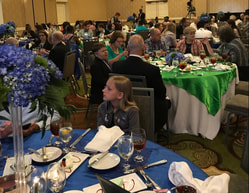 The American Association of Kidney Patients (AAKP), the nation’s largest and oldest independent kidney patient organization broke all records at its 2018 National Patient Meeting – hosted June 8-10 at the Vinoy Renaissance in St. Petersburg, FL. AAKP had a record number of attendees, comprised of kidney patients (at all stages and all modalities), family members, and healthcare professionals. Attendees enjoyed three days of educational sessions featuring a diverse line-up of speakers from all sectors of the kidney community, including top influencers from academia - including Vanderbilt University, Emory University, George Washington University; University of Florida; Baylor College of Medicine; industry representatives; allied non-profit organizations; and Federal government officials including the CDC, CMS, HHS, NIH, and VA. Attendees enjoyed a number of general sessions on the latest in innovation in kidney treatment options and current policy issues affecting their care, along with breakout sessions focused on specific issues such as diet/nutrition, exercise, transplantation, home dialysis therapies, the power of social media, understanding clinical trials, caregiver only sessions and much more! AAKP was also pleased to feature fun, social events such as AAKP’s Welcome Reception, the Annual Awards Banquet and the popular AAKP Social Media Center – where attendees had the opportunity to cut-loose and take fun, Florida-themed pictures with a number of props to help mark their time with new and old friends. AAKP also had a record number of sponsors and exhibitors, all on-hand to speak with attendees and share their products, services and resources. AAKP thanks these companies for their support of patients, AAKP and quality education. Select sessions from the National Meeting were live-streamed during the event and the recordings of these sessions are available on demand at AAKP’s YouTube Channelfor enduring education. The AAKP National Patient Meeting is truly a unique program - that allows individuals to learn, advocate and most importantly, meet others going through very similar experiences. “To be in a room, filled with individuals that know exactly what you have gone through – are going through and to be able to share those experiences, support one another and give hope is truly inspiring and powerful.” said Diana Clynes, AAKP Executive Director. For more information on the recent 2018 National Patient Meeting, visit www.aakp.org/national-patient-meeting. AAKP will release the dates and location for the 2019 program in the coming months. To learn more about AAKP, become involved or join – visit www.aakp.org. Membership is FREE for patients and family members. Post submitted by PREPARE NOW member Diana Clynes.
Nobody truly knows what having kidney disease is like until you have had to deal with it yourself. We asked our patient co-investigators to tell us tips they learned along the way to help them deal with this disease.
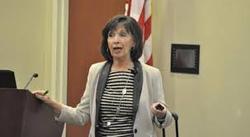 This post is submitted by one of our patient co-investigators, Suzanne Ruff. Suzanne is one of the only people in her family without kidney disease, though she is a proud living kidney donor! It was over 15 years ago now that I heard my mother’s laugh for the last time. It was a deep belly laugh; it was the last time I heard her voice, too. Death is like that . . Mom died of kidney disease a couple of days later. When people expressed their sympathy to us, almost everyone said the same thing: “Your mother was so much fun!” She was fun despite heartache, illness, and kidney disease, saying “Life is like a show . . . it must go on! No one wants to hear my woes! You have to roll with the punches!” One of her nephrologists came to Mom’s Memorial service and said, “I don’t go to every patient’s memorial service, but your mother was special. She was in quite a bit of pain at the end of her life, but she was the toughest woman I ever met. I learned a lot from her. She always told me she tried to ‘roll with the punches’ and she always made me laugh.” Mom was a teenager when her mother died of kidney disease, a genetic disease called polycystic kidney disease (PKD). Her two brothers and two sisters died of PKD. Today, both of my sisters battle PKD and one of them is having a very difficult time right now... it’s hard to even think to laugh. But, somehow today, I’m going to find a way to have a deep belly laugh.
Dale Singer is the Executive Director at the Renal Physicians Association (RPA) and a Stakeholder in the PREPARE NOW kidney study. She talks about her experiences working on the project and why it is so important.
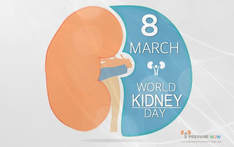 It is one of our favorite days of the year! A day aimed at raising awareness of the importance of our kidneys. What's the point? This day helps to spread knowledge of the importance of our kidneys to our overall health and to reduce the frequency and impact of kidney disease and its associated health problems worldwide. What are you doing to celebrate? Visit the World Kidney Day website to read more information and view kidney related events worldwide! |
Archives
September 2020
Categories |
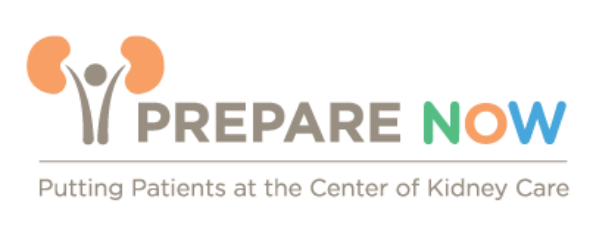
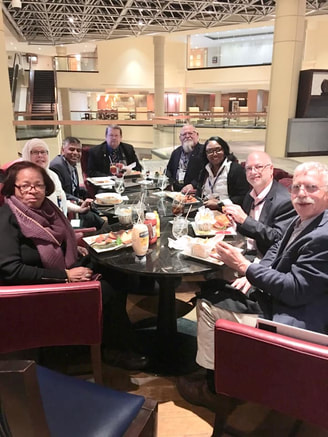
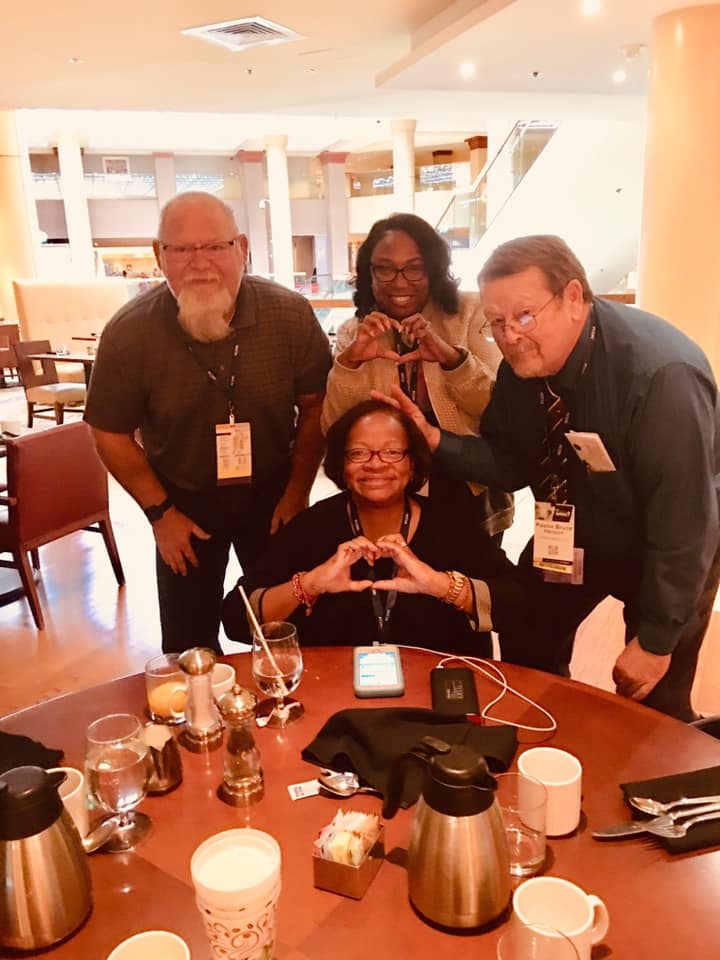
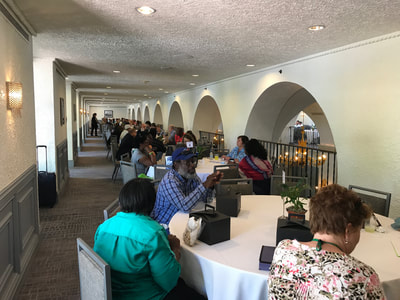
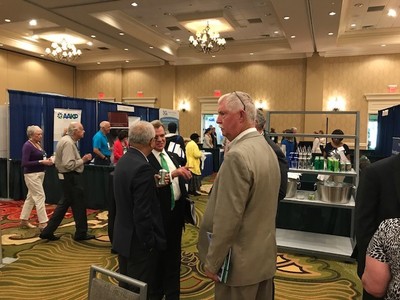
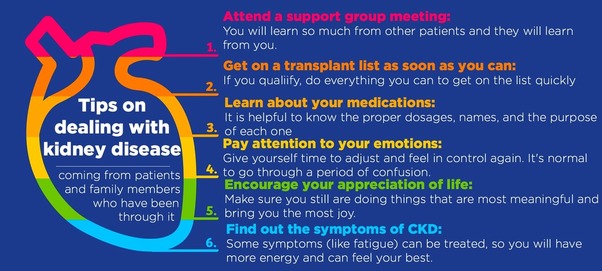
 RSS Feed
RSS Feed
